
Why Fitness Is Important And How To Actually Enjoy It
Though it’s hard to believe, some people actually get a kick out of sweating at the gym.
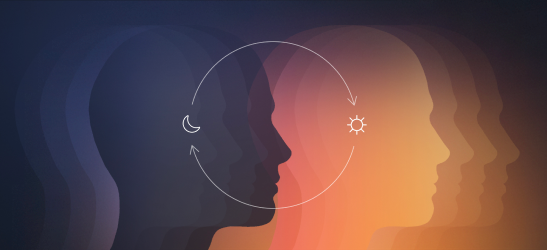
Your circadian rhythm is an internal clock that follows a 24-hour cycle. This clock tells you when it’s time to be alert and productive and when it’s time to turn in. Though our ancestors’ circadian rhythm was naturally set by the rising and setting of the sun, modern life can throw our clocks way off.
Light is the most prominent of all the possible factors that affect your circadian rhythm.
As the sun streams in your window or you turn on the lights, your internal clock gets the message that it’s time to get up and get going. This triggers changes in your body, like a big release of cortisol, the hormone that, among other things, is responsible for keeping you alert and energized. Once it’s dark out and you’ve dimmed the lights, your inner clock tells the brain it’s time to up the production of melatonin, a hormone that signals that it’s time to relax and get to bed.
In addition to light, other cues impact your circadian rhythm. Collectively called zeitgebers, they include temperature, exercise, work hours, travel, and even when you eat. Additionally, your circadian rhythm changes several times as you age.
Your internal clock may need a reset if you have a hard time falling asleep, can’t get up in the morning, or have trouble staying awake throughout the day.
Before diving into how to fix your circadian rhythm, it’s good to understand why it may have gone haywire in the first place. In addition to a circadian rhythm, you also have a chronotype — most often, you’re either an early bird or a night owl, though this can change as you age, change jobs, or even seasonally. Your suffering is real if you’re naturally a night owl but have to get up for class at 7 AM. Alternatively, if you’re an early bird who regularly stays late at the office, you’re also likely to feel the effects of not living in harmony with your chronotype.
School, work, and social and family obligations make it difficult to follow your chronotype and circadian rhythm perfectly. Additionally, for all of its gifts, the invention of electricity has negatively affected our circadian rhythms. If you’re sitting in a bright room near bedtime, your body is not producing enough of the melatonin it needs to get you to fall asleep and stay asleep. Blue-light emitting TV, phone, and computer screens will also keep your brain and body awake and keep you out of sync with your circadian rhythm.
When you down cocktails faster than your liver can metabolize, the concentration of alcohol in your blood rises, and you get drunk. The more alcohol you consumed, the harder it is for the liver to process it. Eventually, this waste buildups up in your body and leads to liver diseases such as steatosis (know as fatty liver), alcoholic hepatitis, and cirrhosis. As many as 47.9% of mortality cases due to liver diseases are alcohol-related.
Your 24-hour internal clock doesn’t just regulate sleep but also your hormones, immune response, body temperature, and digestion. Essentially, it tells your body’s internal systems when they need to ramp up your metabolism, lower your body temperature, and even when you should be eating. When you can’t sync up with your body’s internal clock, it doesn’t just affect your energy levels and productivity. You can also be at risk for type 2 diabetes, as a disrupted circadian rhythm can affect your glucose metabolism.
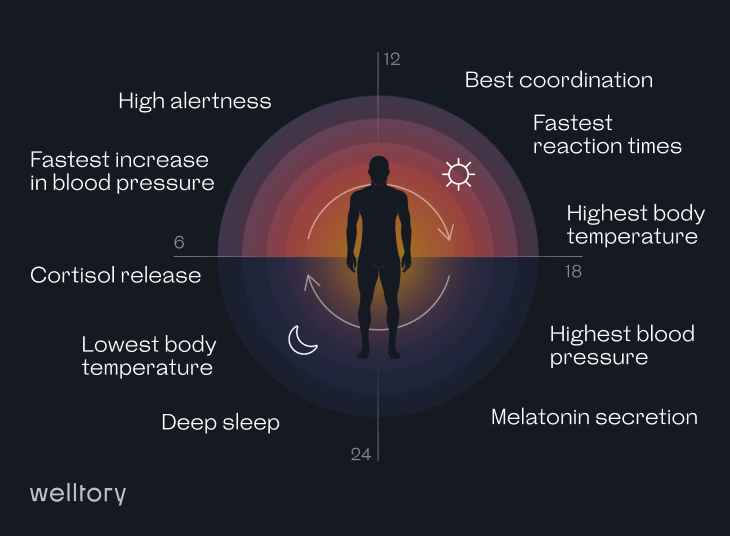
You don’t have to give up your job and go live off-grid. You can make a host of changes that will gradually reset your clock and make you feel and sleep better without having to overhaul your entire life.
Going to bed and waking up at the same time every day will help reset your inner clock. Unfortunately, this includes weekends, which is no easy task. Take the time to observe when you naturally start feeling sleepy and when it feels good to wake up. If you take measurements with Welltory, you’ll get feedback about your energy and stress levels that can help you visualize when you’re feeling sharp and ready to go and when it’s time to put away the laptop and get ready for bed.
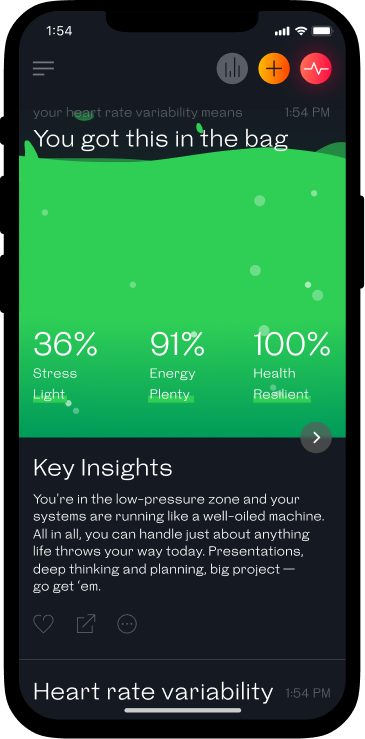
Since your internal clock responds to light, try to get as much of it as possible during the day. Open up your curtains, and go for a morning walk, if you can. If you’re getting up before sunrise, try artificial light therapy or just turn on bright lights as you get ready.
To get your melatonin flowing and your body ready for sleep, avoid bright lights after sunset as much as you can. Additionally, put away your phone and laptop two hours before bed. Get blackout curtains for your bedroom to block out street lights. If you’re a night owl, this can also help you sleep through sunrise when your body is not ready to start the day just yet.
Though it’s tempting to think pulling an all-nighter will make it easier to fall asleep the next night, research has shown that a sleep deficit won’t help you reset your circadian rhythm.
If you’re naturally an early bird and want to wake up and go to bed earlier, morning exercise can help advance your circadian rhythm by half an hour. Night owls can get the same benefits by working out in the morning or the evening. If, on the other hand, you are trying to stay up later and wake up later, evening exercise will do the trick for most people.
Taking your meals at the same time each day may help reset your circadian rhythm. As you shift your wake and sleep times, move your meals too. Since your internal clock is also responsible for digestion, aligning your eating time with your circadian rhythm can help with the transition.
Having a cup of coffee or tea close to bedtime can throw off your circadian rhythm. One study found that having the equivalent of a double espresso 3 hours before bedtime delays the internal clock by 40 minutes.
Alcohol can inhibit melatonin production by up to 19 percent, according to one study. Though having a drink may make you fall asleep faster, one study found that having just two drinks decreased sleep quality by 9 percent. Try to plan cocktail hour as far away from bedtime as possible.
Resetting your circadian rhythm takes time, and you may have to tweak your schedule a few times before you find your groove. Tracking your sleep with devices like the Oura Ring or your Apple Watch will give you feedback about how well you’re sleeping, which can help you see if you need to make some changes. There are also sleep apps, like Sleep Cycle, that do virtually the same thing.
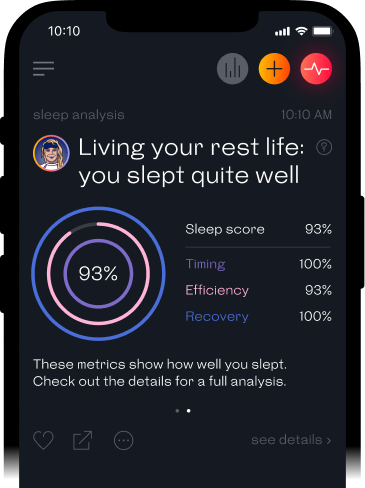
If you sync your tracker or sleep app with Welltory, you can also get a sleep score that takes note not just of the quality and duration of your sleep but also of how consistent you are with sticking to your sleep schedule.
The structures of work, school, and social obligations make it near impossible to follow your internal clock every single day, but taking the time to check in with how you’re feeling, and making small changes, will add up to a big difference.
Welltory Team, 09 Sept. 2022

Though it’s hard to believe, some people actually get a kick out of sweating at the gym.

Your body has an inner clock determined by your circadian rhythm. Our circadian rhythms are set by internal and external factors.
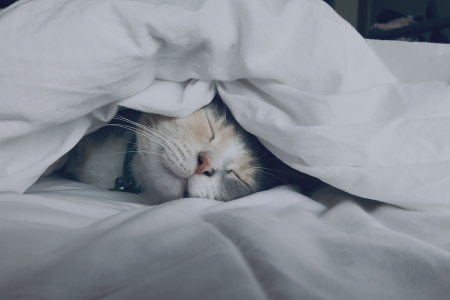
Find out why you need to track your sleep, what gadgets and apps you can use.

Addiction is a habit that has become such a big part of your life that you experience withdrawal symptoms if you try to give it up.
 App Store
App Store
 Google Play
Google Play
 Huawei AppGallery
Huawei AppGallery
 Galaxy Store
Galaxy Store







